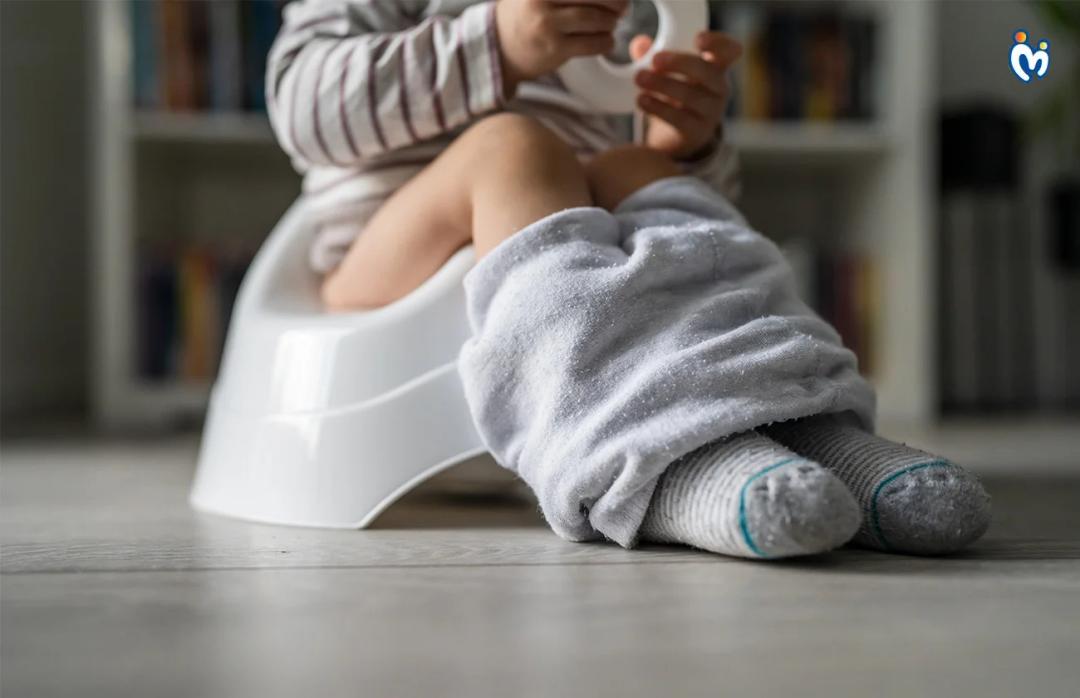Social skills are a great part of child development because they allow them to interact positively and communicate their needs and feelings. Imparting these social skills is a slow, gradual, and ultimately rewarding process that improves your toddler’s emotional and social intelligence. This makes social skills an important part of various aspects of life.
What are the benefits?
Good social skills not only help children communicate better but also reduce stress. Kids who understand themselves and have empathy for themselves are very empathetic to others. Social skills are linked to great success in school, college, friendships, and life. Kids with great social skills can also have a brighter future. Social intelligence brings independence, stronger friendships, problem-solving skills, and emotional intelligence.
Here are 5 ways to improve your toddler’s social skills:
Power of Sharing
A willingness to share toys and food can go a long way toward helping kids make and keep friends. However, as children grow, they often become a little selfish when it comes to sharing their resources with others. They think that if they share their toys with others, they will have less to enjoy. While it’s usually not a good idea to force your child to share something, you can buy things that require a partner. Practice together at home with them by communicating things like, ‘Let’s divide this cookie between both of us’.
You can also go on playdates with your toddler, where you both share a toy or create a story to play together. Never snatch a toy from the toddler to teach them to share. Remember, you will be their role model, and they will follow what you are doing.
How do I practice?
Start by sharing everything, from food to toys, with family members in front of the toddler. Along with sharing, start enforcing positive statements like sharing is caring, it’s a nice thing to share, sharing to make others happy, and so on. Every time your toddler shares something with you or anyone else, say thank you and give them rewards such as more playtime or their favourite food. This will encourage them to share more, which will eventually become a habit.
The Power of Cooperating
Cooperating means working together to achieve a common goal. Kids who cooperate are respectful toward others. They know how to contribute, participate, and help out in any way they can, and good cooperating skills are essential to surviving in a community. Toddlers will grow up and have to cooperate in the classroom, playground, family, and more.
You can involve your toddler in small activities, such as building a toy, wearing their clothes, changing their diapers, washing their hands, and eating their food. Part of cooperating also means finding solutions to problems and learning that things do not always go their way. Some kids like to take on leadership roles, which means they like to do everything by themselves. In such situations, cooperate with your kids and make them understand it’s okay to require help sometimes. In any way, cooperation is a great quality for kids to understand themselves and thrive in groups.
How do I practice?
Talk about the importance of teamwork and saving time along the way. Create opportunities where your toddler can cooperate with you, and name it teamwork. Give them credit for the work they have done and praise them. You can start by asking them to help you serve the meal at the dinner table, arrange their toys in a basket before sleeping, and help you bring vegetables inside after buying them from a local supermarket. This will make them feel important, as they helped in completing a task responsibly.
The Power of Listening
Listening is more than just staying quiet and letting the other person speak. It’s about observing and absorbing what someone else is saying. After all, much of learning in school, college, and life is about the ability to listen to what the other person is teaching.
It’s essential for a child to grow up to not just listen but to understand their friends, boss, partner, and more. In the world of digital devices, this can be a little difficult to teach your toddler. Make sure to establish the fact that the digital devices aren’t out in between a conversation. Always remember that your toddler will do what they see, so you are a role model for the kids even when you aren’t trying to teach them.
How do I practice?
Read a book to your toddler daily before going to bed or when they are most peaceful during the day. Periodically, stop in between and ask them, What do you remember about the story so far?
Make sure the story reading time isn’t just one side conversation, and keep asking them questions, filling in gaps, and encouraging them to listen as you continue. The need to give correct answers will keep them focused. Teach them to not interrupt while you are speaking and to wait for their turn to ask questions.
Following Directions
Kids who don’t follow directions are likely to struggle more in their lives than others. Not following directions can be a big problem when it comes to their changing behaviour. Whether you instruct your toddler to bring their toys from the room or wear a diaper by themselves, the toddler needs to take the right directions and follow the instructions.
However, if you want your kids to get better at following the instructions, you should also get well-versed in giving the right directions. You can follow some of the tips to learn how to give the right instructions to your toddler.
- Ask for one thing at a time.
- Avoid phrasing your statement as a question.
- Kids getting distracted is normal; view their mistakes as opportunities.
How do I practice?
Give them directions, and praise them for following them. Engage them in small things like “Please pass that TV remote to me,” as it’s an easy thing to do for a toddler. Slowly move to direct them to do their things, like asking them to wear their clothes and instructing them as to how to wear bottom pants and a top. Use simple clothes that are easy to wear with no buttons or complications. Give them one instruction at a time to follow, and watch them accomplish it all.
Respecting Personal Space
Some kids barge into a room without knocking on the closed door; others jump on the lap of acquaintances without asking them, making them uncomfortable. Therefore, it’s very important to teach kids how to respect other people’s personal space. There are so many signs that can help you understand when to say no to a child. For example, snatching food from someone’s hand, jumping on people to greet them, touching someone’s face or hair, or standing too close while talking.
Use these moments as teachable mistakes, take them aside, and teach them about personal space. Practice this at home by making some rules to be followed by everyone in the house. It can become a game for the toddler, with a reward like a cookie or a punishment like losing a toy when they don’t follow the rules.
How do I practice?
Teach your children to keep an arm’s distance while they are speaking to someone. Make some rules for everyone in the house that include: knocking before entering a room; asking before eating from someone’s plate; taking permission before using anyone’s thing; keeping the hand away from someone when speaking to them; and more. Teach them how to respect someone's personal space.
Above everything else, be patient with your toddler and notice the difference in them as they slowly take up all the social skills. Nobody learns everything at once, so give them their sweet time to understand and act accordingly. During practice time, don’t lose your cool because you are teaching your kids to be angry when things go wrong. Always remember that your kids learn the basics of communication and social skills primarily from family members.
FAQ's
Q. Why are social skills important for toddlers?
Ans.Social skills help toddlers express emotions, communicate needs, and build positive relationships. These skills are essential for success in school, friendships, and life, promoting emotional intelligence, problem-solving abilities, and a sense of independence from an early age.
Q. How does sharing help improve social skills in toddlers?
Ans.Sharing teaches toddlers empathy, fairness, and cooperation. It helps them understand the importance of giving and taking, which strengthens friendships and emotional bonds. Practicing sharing at home through games or snacks builds a strong foundation for social development.
Q. What are some fun ways to teach sharing to toddlers?
Ans.Practice sharing by splitting snacks or toys, creating stories around sharing, or going on playdates. Praise and reward them when they share willingly. Use phrases like “sharing makes others happy” to reinforce the behavior positively and consistently.
Q. Why is cooperation an essential social skill?
Ans.Cooperation helps toddlers learn teamwork and problem-solving. It teaches them to contribute, follow group norms, and respect others’ efforts. This prepares them for school and community life where working together is crucial for success and harmony.
Q. How can I teach cooperation to my child at home?
Ans.Involve toddlers in daily chores like arranging toys or helping at mealtime. Call these “teamwork” tasks and praise their contributions. Simple activities like setting the dinner table or sorting laundry make them feel responsible and encourage cooperation.
Q. What’s the best way to teach listening to toddlers?
Ans.Read stories aloud and pause to ask questions. Avoid interruptions during conversations and maintain eye contact. Model good listening behavior yourself, showing your toddler that listening respectfully is key to understanding and learning from others.
Q. How do I improve my toddler’s ability to follow directions?
Ans.Start with one-step instructions like “pass me the spoon.” Gradually increase complexity as they succeed. Give clear, positive commands instead of questions. Celebrate their success with praise to boost confidence and reinforce the habit of following directions.
Q. What are signs my toddler needs help with respecting personal space?
Ans.If your child frequently touches others without asking, interrupts conversations, or stands too close while speaking, they may need help understanding personal boundaries. Teaching them simple rules and consistent practice can improve this behavior over time.
Q. How can I teach my toddler about personal space?
Ans.Set clear rules like knocking before entering or asking before using someone’s things. Use role-play and daily routines to reinforce these boundaries. Praise them when they respect others’ space, and gently correct them when they don’t.
Q. How long does it take to develop strong social skills in toddlers?
Ans.Social skills develop gradually and require consistent practice, patience, and positive reinforcement. Every child learns at their own pace, so support them with encouragement and role modeling. Over time, you’ll notice steady improvements in their social behavior.
















